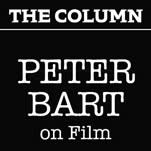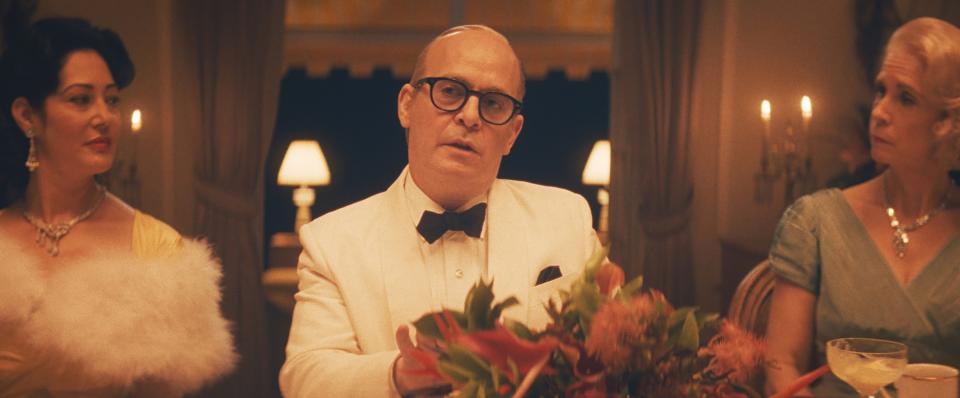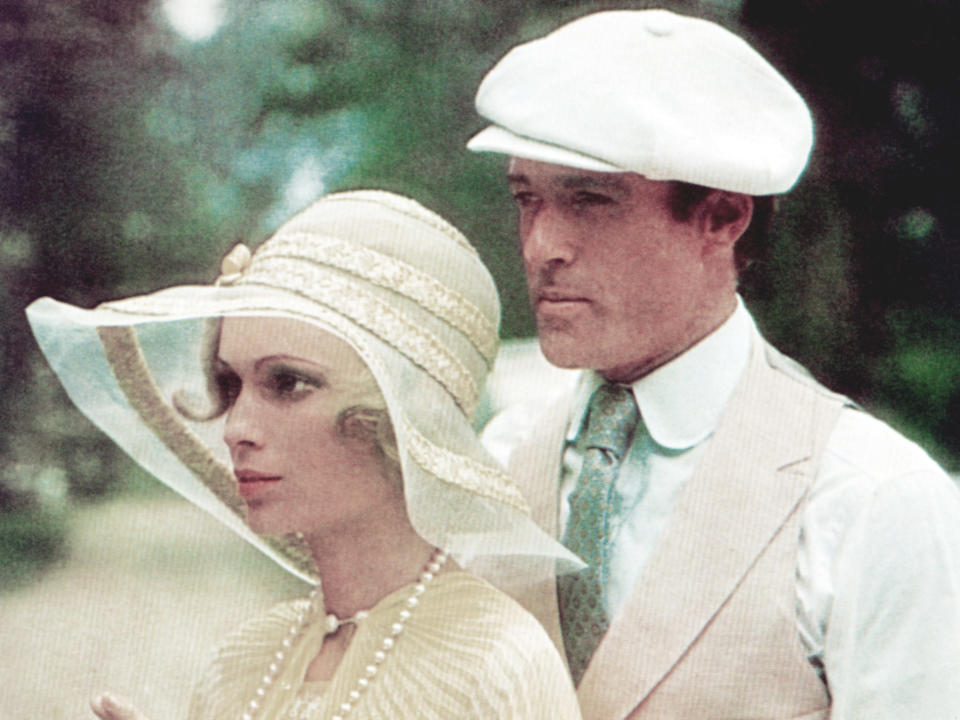Peter Bart: Remembering Truman Capote’s Boozy Swan Dive And His Not-So-Great ‘Gatsby’


Once the hottest writer in town, Truman Capote also was a master at self destruction.
Cut to The Bistro, Beverly Hills circa 1973. Cradling his cocktail, Capote was at once amiable and petulant. I was sitting across from him at the elegant café to discuss his new screenplay, but the discussion soon became an argument.
More from Deadline
Capote, always theatrical, finally turned to strangers at the next table. “I wrote a brilliant screenplay and this man from Paramount is telling me that I didn’t write it, I simply typed it,” Capote complained, an edge to his high-pitched voice. “What should I do to him?”
The strangers smiled. “Order another martini,” said one. “Better make it a double.”
A superstar writer and raconteur, the late Capote needed more than a drink at this point in his life, and our meeting was not helping him. I thought of him this week as his “character” took his star turn in the new eight-part series Feud: Capote vs The Swans, where he is cast as the victim of his own fabled storytelling.
If he were alive to see the show, lavishly produced by Ryan Murphy, I think he’d probably relish both the comedy and the contradiction. That’s the way he reacted decades earlier when he and I had our stressful encounter.
In his heyday, Capote occupied a uniquely broad presence in film, TV and pop culture. His bestseller, In Cold Blood, had a transformative influence on the genre of crime writing. Breakfast at Tiffany’s, his novella, formed the basis for what became filmgoers’ favorite date movie.
His profile on CBS This Morning last weekend reminded us of his powerful influence on New York’s social scene. His star-packed Black and White Ball in 1966 re-defined the concept of the celebrity event, jamming New York socialites with Hollywood stars like Frank Sinatra and his bride, Mia Farrow, in a dizzying mega mix. Capote had even become a semi-regular on Johnny Carson’s Tonight Show.
But Capote’s lasting impact was as a writer – a craft that would ultimately destroy him. Unexpectedly, I was to play a minor role in his demise.
In the Swans TV series, Capote, hard-drinking and always tuxedo-clad, makes the rounds of glitzy parties, spinning gossipy stories to a worshipful band of wealthy women.

To those of us who knew Capote, his character as played by Tom Hollander seems distorted – he’s a whiny study in flamboyance, his gestures grossly exaggerated.
In fact, Capote the working writer was direct and business-like, a wandering fact-gatherer. He could drop into Holcomb, Kansas, and comfortably gain trust among suspects and eyewitnesses.
This was the Capote I encountered when he was engaged to write the screenplay of The Great Gatsby – a challenge and a payday that he coveted.
To Capote, a film based on the great F. Scott Fitzgerald novel (the third try) would have to be glamorous and suspenseful, its charming protagonist a study in danger.
But there were problems. At the helm of the project was the mercurial David Merrick, a prolific Broadway producer who had limited film experience but strong opinions. Once, when a Merrick play was panned, he famously consulted a phone book for New Yorkers with the same names as the city’s top critics and got the civilians to write glowing blurbs for a full-page ad.
A director had not as yet been selected for Gatsby, nor a leading man, but Robert Evans, Paramount’s chief of production, had been talking with Robert Redford about playing Jay Gatsby. Merrick felt Redford was a decade too young for the role, his “dark past” lacking credibility. Redford tended to agree, so Evans next courted Warren Beatty for the lead. Beatty declined, insisting that Evans himself was the right casting for the role. Tempted, Evans decided to keep his day job.
Merrick and Evans also had conflicting ideas on directors but agreed on questions of style. Set in the roarin’ 1920s, Gatsby’s world was on a spending spree. Truman Capote understood that era, indeed still lived in it.
I was a lone dissenter on his hiring. Friends in the publishing business had warned me that Capote seemed committed to drinking, not writing.
Even as Paramount was negotiating an extravagant writing deal for Capote, I was talking with Francis Coppola who, though in postproduction on The Godfather, was responsive to my prodding for a Gatsby screenplay. To Coppola, Marlon Brando seemed perfect casting to play an older Gatsby, in contrast to the boyish Redford.
Meanwhile, the concept of a Capote Gatsby would run aground at The Bistro in Beverly Hills. Overcoming his “block,” Capote had turned in his script but, upon careful examination, it was not a script at all. It was a typed version, word for word, of several chapters of the Fitzgerald novel, carefully re-formatted for dialogue and staging.
When I confronted Capote, he gave me a benign smile. “How could I try to improve on Fitzgerald?’ he asked innocently. “He’s the best so why would I rewrite him?”
“Then you acknowledge having simply retyped a few chapters?” I said.
“And you will, of course, still pay me for my work.”

“Of course,” I said. “After all, you are a brilliant typist. One who deserves another drink.” I signaled the waiter.
The martini felt even better than the first round and, upon leaving, Capote gave me a big hug. I put through payments of $150,000 for Capote’s typing job and $350,000 for Coppola to finish his script.
Upon receiving the news, Redford decided he’d like to play Gatsby after all. Gatsby was a disappointment at the box office.
Sign up for Deadline's Newsletter. For the latest news, follow us on Facebook, Twitter, and Instagram.

